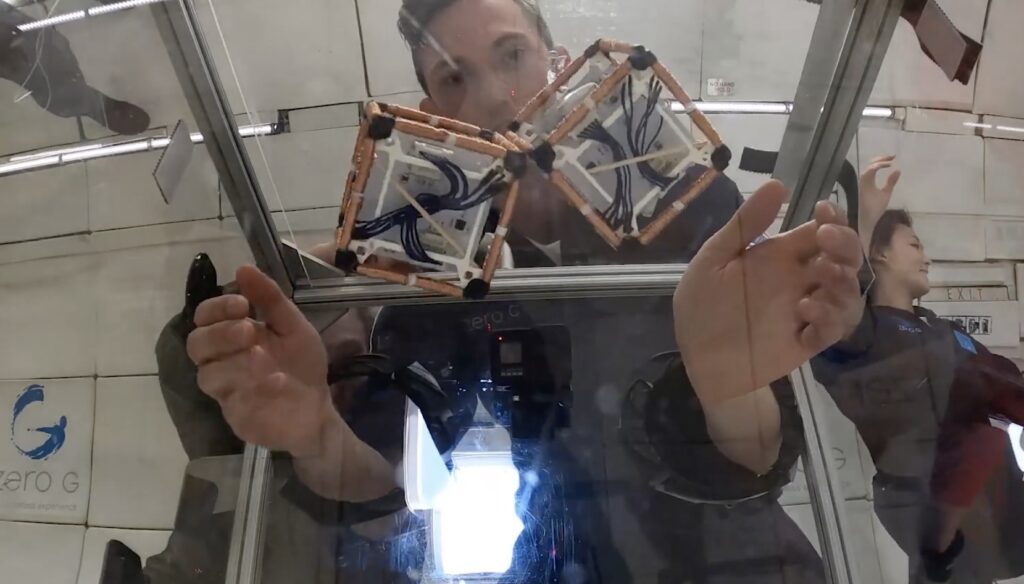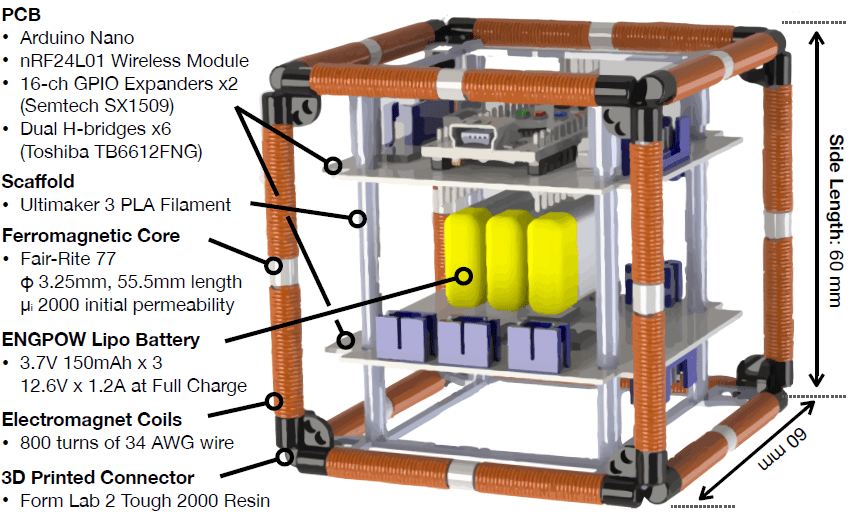ElectroVoxel robots reconfigure themselves using magnets

The ability to control magnetism is very powerful and acts as the basis for huge swaths of modern technology. Without electromagnetism, we likely would never have progressed into the digital age — we wouldn’t even have electric motors. Now engineers from MIT CSAIL are using electromagnetism for something new: reconfigurable robots.
ElectroVoxel robots are cube-shaped modules that can self-assemble into more complex shapes. Each robot has electromagnet coils lining its edges. An Arduino Nano with a wireless transceiver drives those electromagnets, allowing for untethered operation. Power comes from LiPo batteries and the frames are 3D-printed. By controlling the current and polarity of each electromagnet, the robots can cling to each other. They can also move by using an attractive edge connection for a pivot point and repulsion for actuation. They can use that movement for basic locomotion or to reconfigure into new shapes.

Unfortunately, ElectroVoxel robots only work in microgravity. Earth’s gravity is too strong for their electromagnetic repulsion to overcome for a pivot motion. For that reason, the engineers were forced to test the ElectroVoxel robots in “vomit comet” parabolic plane flight, which creates a microgravity effect. In that environment, the robots successfully reconfigured themselves into a variety of shapes without any external manipulation.